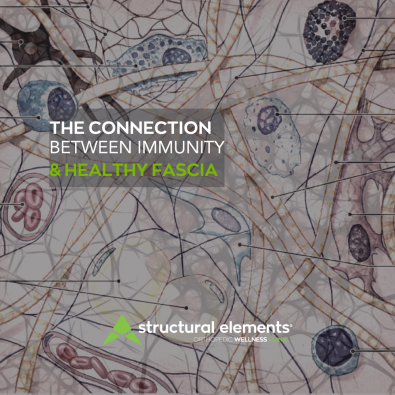The Interplay Between a Healthy Immune System and Healthy Fascia
The human body is a complex and interconnected system where various components work together to maintain health and well-being. Among these components, the immune system and fascia play crucial roles in ensuring our overall wellness. This blog post will explore the relationship between a healthy immune system and healthy fascia, shedding light on their fascinating interplay. Additionally, we will delve into the involvement of the autonomic nervous system (ANS) and how immune cells utilize the fascia network to travel throughout the body.
The Immune System and its Importance:
The immune system is a sophisticated defense mechanism that protects our bodies against harmful pathogens like bacteria, viruses, and parasites. It comprises a network of specialized cells, tissues, and organs working together to identify, neutralize, and eliminate foreign invaders. A healthy immune system prevents infections, promotes healing, and maintains overall well-being.
Understanding Fascia and its Significance:
Fascia is a connective tissue surrounding and supporting the body's muscles, bones, organs, and other structures. It is a three-dimensional network of collagen fibers that provides structural integrity and facilitates communication between different body parts. Fascia is a dynamic system that influences movement, flexibility, and overall body function. When the fascia is healthy, it promotes optimal tissue health, fluid flow, and immune system function.
The Autonomic Nervous System (ANS) and its Role:
The autonomic nervous system (ANS) regulates various bodily functions, including immune responses. Comprising the sympathetic and parasympathetic branches, the ANS controls involuntary actions, such as heart rate, digestion, and immune system modulation. The balance between these branches is crucial for maintaining a healthy immune system and overall wellness.
Fascia as a Highway for Immune Cells:
Recent research has shed light on how immune cells utilize the fascia network to travel throughout the body. The fascia acts as a highway, allowing immune cells to migrate to areas of infection or inflammation. Immune cells, such as leukocytes, can move through the fascia via a process called amoeboid migration, squeezing between collagen fibers. This dynamic movement ensures efficient immune surveillance and response.
The Fascia-Immune System Connection:
A healthy fascia network supports immune system function in several ways. Firstly, the fascia provides physical support to immune cells, allowing them to reach their target sites efficiently. Secondly, the fascia contains a rich supply of blood vessels and lymphatic vessels, crucial for transporting immune cells, oxygen, and nutrients. Thirdly, the fascia acts as a signaling network, facilitating communication between immune cells, tissues, and organs.
Maintaining a Healthy Immune System and Fascia:
Several lifestyle factors can be considered to promote a healthy immune system and fascia. Regular exercise, stretching, and movement help maintain fascial elasticity, ensuring proper fluid flow and tissue health. A balanced diet rich in nutrients supports immune system function and tissue repair. Managing stress levels through relaxation techniques, mindfulness, and adequate sleep also positively impacts both the immune system and fascia.
Conclusion:
A healthy immune system and healthy fascia are interconnected and vital for overall well-being. Understanding the relationship between these two systems enhances our knowledge of immunity and opens avenues for new therapeutic approaches. By nurturing our immune system and fascia, we can optimize our body's ability to defend against pathogens and maintain optimal health. Let us embrace the fascinating interplay between immunity and fascia, nurturing these essential components of our well-being.
References:
1. Schleip R, et al. Fascia: The Tensional Network of the Human Body. Elsevier, 2012.
2. Chavan SS, et al. The immunomodulatory effects of the autonomic nervous system. J Immunol, 2017.
3. Langevin HM, et al. Can Fascia Contribute to the Pathophysiology of Fibromyalgia? J Pain, 2011.
